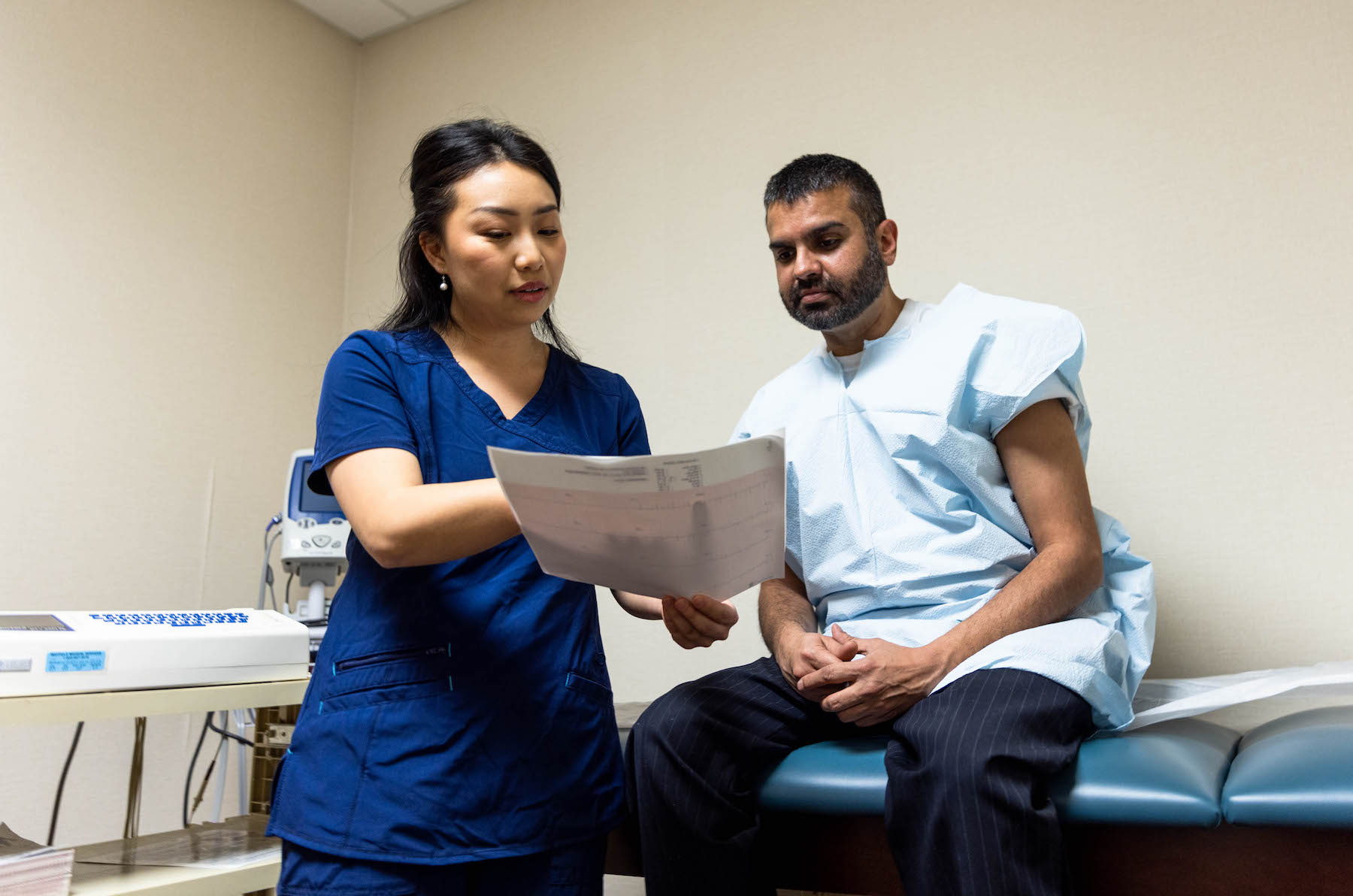What is Colorectal Cancer?
Colorectal Cancer, or Colon Cancer, is the third most common cancer and it begins in the large intestine. It usually starts as small, noncancerous (benign) clumps of cells called polyps that form on the inside of the colon. Over time, some of these polyps can develop into colon cancer and consequently spread to additional areas of the body. Symptoms of colon cancer include a persistent change in your bowel habits, including diarrhea or constipation or a change in the consistency of your stool. Additional symptoms may include bloody stools, abdominal discomfort, fatigue, unexplained weight loss, and a feeling that your bowel doesn’t empty completely.
Existen varios tratamientos aprobados por la FDA y medicamentos sin recetas disponibles para ayudar a los pacientes a manejar los síntomas. Aunque muchos tratamientos efectivos están disponibles, estudios clínicos podrían aún ser su mejor opción mientras ellos trabajan para desarrollar terapias más avanzadas.
Factores de Riesgo
- Age
- Race or Ethnicity
- Chron’s Disease, Ulcerative Colitis
- Genetics
- Diet
- Lifestyle
- Diabetes
- Smoking
- Alcohol Use
Síntomas
- A persistent change in your bowel habits, including diarrhea or constipation or a change in the consistency of your stool
- Rectal bleeding or blood in your stool
- Persistent abdominal discomfort, such as cramps, gas or pain
- A feeling that your bowel doesn’t empty completely
- Weakness or fatigue
- Unexplained weight loss
Tratamientos
- Cirugía
- Quimioterapia
- Radiación
- Terapia Dirigida
- Inmunoterapia
- Cuidados De Apoyo (Paliativos)

Managing Colon Cancer
Colon cancer can be prevented with early detection which is done simply by a procedure called a coloscopy. American Cancer Society Guidelines recommend all patients begin to get colonoscopies starting at age 45 or earlier if you have a family history of cancer or colon cancer. (Colorectal Cancer screening Guidelines)
During colonoscopies, specialists look for abnormalities within the colon such as polyps, growths inside the colon. These polyps can be removed up to a specific size if caught early. This is considered early disease and can be managed with little to no treatment. When a colon polyp grows too large, you may need to undergo surgery to remove it. Polys left unaddressed could lead to colon cancer. Cancer that is localized to the colon is easier to diagnose and treat. If at any time the cancer spreads to other organs, it is considered metastatic cancer.
Your healthcare provider will be able to inform you of the treatment options available to you that will give you the best chance in making an informed decision on your treatment path. Treatment options may include surgery to remove the tumor, radiation, immunotherapy, chemotherapy, and supportive (palliative) care. Clinical trials may also be an option for you as they provide opportunities for alternative treatments.
Asegúrese de discutir todas sus opciones con su proveedor de cuidados de la salud.

Currently Enrolling
Trials at KCRI
FAQs about Colon Cancer
Preguntas frequentes
Can KCRI diagnose colon cancer?
Yes. KCRI can perform the colonoscopy necessary to identify polyps in the colon. Once diagnosed, we may refer you to a specific oncologist based on your unique circumstances and specific advancement.
Can colon cancer be removed?
If caught early enough, yes, these cancerous cells can be intercepted. However, if it is embedded into the wall of the colon or advanced to other areas of the body such as the lymph nodes, this means it has reached a greater stage and must be referred to an oncologist.
Are there any treatments for colon cancer?
There are first-line, second-line, and third-line treatments for colon cancer. This means you have to have failed a certain type or types of treatments before you can try others.
For example, specific medications can be used to treat colon cancer, but they are only proven effective for certain patients. Your oncologist may perform genetic typing to understand whether you may be a candidate for a more targeted therapy.
Does KCRI offer colon cancer trials?
It is common for KCRI to offer a clinical trial to treat colon cancer as long as that trial does not require an in-house stay. View our current trial options Here!
Colorectal Cancer Facts:

The Colorectal Cancer Facts & Figures report provides a comprehensive overview of colorectal cancer in the US, including statistics on colorectal cancer occurrence, as well as information about risk factors, prevention, early detection, and treatment.
No ve el estudio que está buscando?
Aquellos que participen:
- Verán a un médico certificado por la junta sin costo alguno
- Tendrán Acceso a posibles opciones de Tratamientos antes que el Público General
- Podrán ser compensados por su tiempo y viaje
Estamos contínuamente tomando nuevos estudios clínicos para todo tipo de condiciones. Envíe su información hoy para ser contactado para oportunidades de próximas investigaciones.




